Study bites: Think like an academic
30 Aug 2021
Hello… is there anybody out there?
It’s only week two of lockdown (who knows how many more we may have to endure), and already many of us are feeling the strain of balancing work, home, and study without falling behind or feeling overwhelmed. For most of us, lockdowns mean there are few quiet spaces and times for full immersion in our studies, or at least in the ideal sense. But there are things we can do to keep focussed on our studies that don’t require many hours of uninterrupted time for reading texts and summarising our understandings.
So, what can we do?
One way to keep our brains active and engaged is to find audio and audio-visual materials that we can learn from while we keep on top of our domestic chores.
While multitasking isn’t for everyone, you may find that listening to a lecture or even a podcast while you tidy your room or wash the dishes is an effective way of learning and a good distraction from the boredom and misery of seemingly endless housework.
While listening to lectures gives you the specific focus of your course content, they also provide the key concepts, frameworks, and issues, and thus a clue as to where to look for inspiration and additional insights and information.
So, how do we make sure we are listening to quality sources? Well, now is a good time to spend some time tracking down reliable YouTube or Podcast channels, that can help break down complex concepts or bring you back to the big picture. Ask yourself, who is the author/creator of the source? What is their background or affiliation? What sort of evidence to they provide for their claims? Do their explanations align with what you have been learning so far? Do they contradict them? If so, are they providing alternative, critical approaches that unpack the concepts further, or are they presenting their claims as opinion, without evidence or clear explanations?
When you think you have found a quality source, share it with your tutor, lecturer or peers and ask for their feedback. Perhaps you can even start a discussion group with your peers to share resources and reflect on them collectively?
Whether or not you find a quality source that helps you better understand the key concepts and theories in your discipline, the act of searching for them and evaluating their reliability and trustworthiness is an exercise in critical thinking that will serve you in your studies and in your life.
In the age of Fake News, we all need to be asking key questions about our sources. I’ll leave you with a quote from The Foundation for Critical Thinking that I hope will help you on your path:
Everyone thinks. It is our nature to do so. But much of our thinking, left to itself, is biased, distorted, partial, uninformed, or downright prejudiced. Yet, the quality of our life and that of what we produce, make, or build depends precisely on the quality of our thought. Shoddy thinking is costly, both in money and in quality of life. Excellence in thought, however, must be systematically cultivated.
That’s all for now, but keep your eyes peeled for more from me on developing and demonstrating critical thinking skills and for invitations to join student-led peer-centred groups with other students at the Centre.
And don’t forget that you can email, call or text me with any ideas, questions or concerns as well as book a one-on-one academic skills session via Zoom during lockdown.
Stay safe and keep well,
Dr Ella Dixon.

0 Comments
There are currently no comments, be the first to leave one